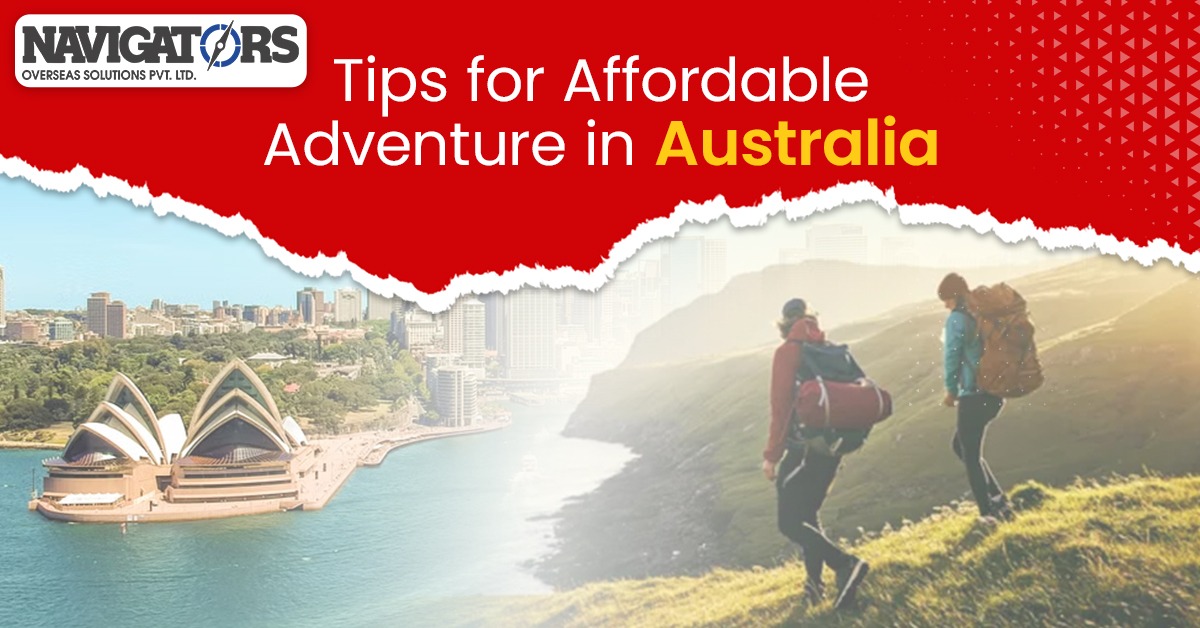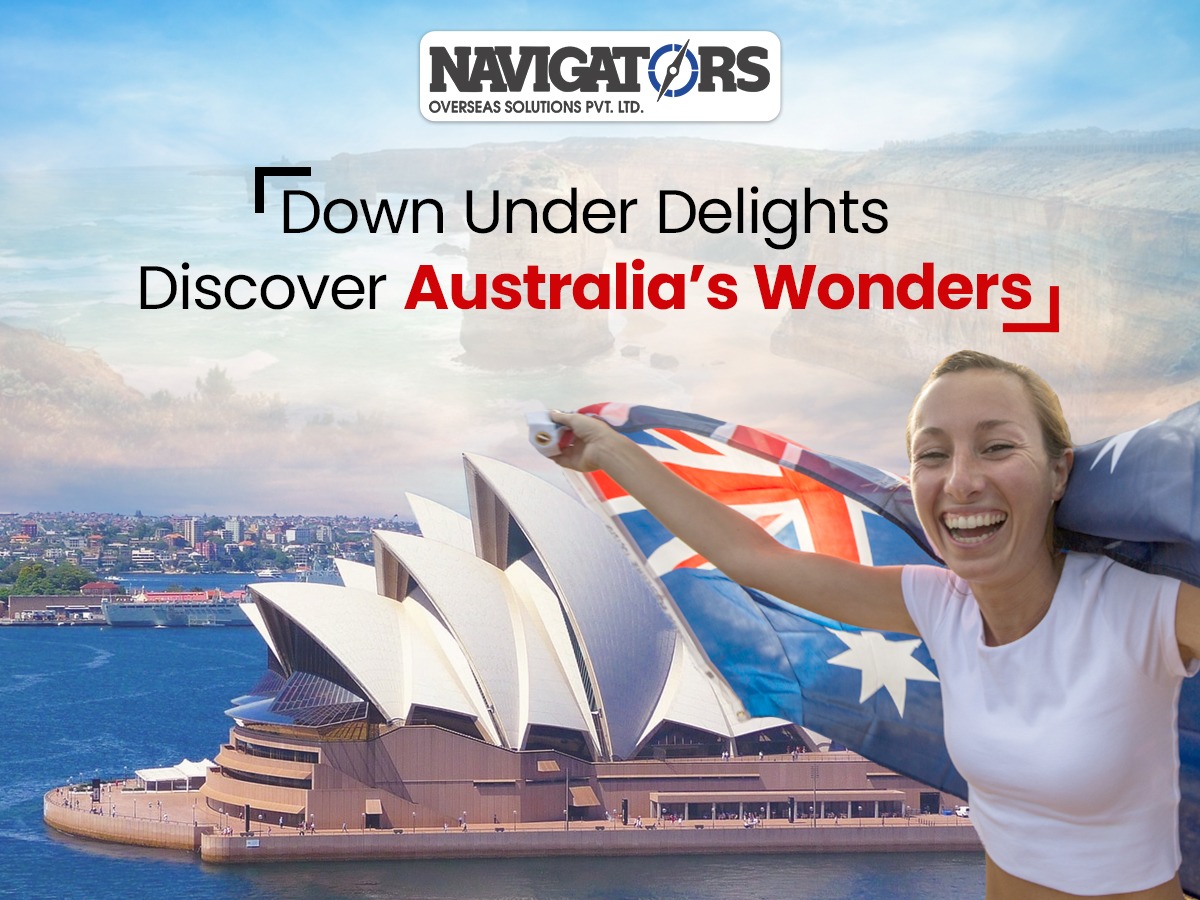“DOWN UNDER DELIGHTS: DISCOVER AUSTRALIA’S WONDERS”
Australia, located in the Southern Hemisphere between the Indian and Pacific Oceans, is a vast and diverse country known for its stunning landscapes. With a population of around 26 million, its official language is English, and its currency is the Australian Dollar. Governed as a federal parliamentary constitutional monarchy, Australia’s economy is robust, featuring sectors such as mining, agriculture, and tourism. The country’s climate ranges from tropical in the north to temperate in the south and arid in the interior, contributing to its unique biodiversity and varied natural beauty. In this blog we are focusing on Australia Tourism.
GEOGRAPHICAL DIVERSITY IS APPEALING TO EVERY EYE:
Australia’s geographical diversity is like a living canvas that showcases a breathtaking array of landscapes and environments, each with its own unique charm. Here’s how this diversity appeals to different tastes:
- Coastal Beauty: Australia’s extensive coastline features some of the world’s most beautiful beaches, like Bondi Beach and the Great Barrier Reef. Crystal-clear waters, golden sands, and vibrant marine life attract beach lovers, snorkelers, and surfers alike.
- Desert Landscapes: The Red Centre offers dramatic desert vistas with iconic landmarks such as Uluru and Kata Tjuta. The stark beauty of the outback, with its vast, open spaces and striking red hues, appeals to those who appreciate rugged, untouched wilderness.
- Tropical Rainforests: The Daintree Rainforest in Queensland is one of the oldest rainforests in the world, teeming with lush greenery, exotic wildlife, and cascading waterfalls. Nature enthusiasts and adventure seekers are drawn to its rich biodiversity and vibrant ecosystems.
- Mountain Ranges: The Snowy Mountains and the Blue Mountains offer stunning alpine scenery, with opportunities for skiing, hiking, and breathtaking vistas. The rugged terrain and dramatic elevations attract outdoor adventurers and nature lovers.
- Unique Flora and Fauna: Australia is home to a wide range of unique plants and animals, including kangaroos, koalas, and eucalyptus forests. The chance to see these species in their natural habitats adds an extra layer of appeal for wildlife enthusiasts.
- Urban Landscapes: Cities like Sydney and Melbourne combine urban sophistication with stunning natural backdrops. Iconic landmarks like the Sydney Opera House and Harbour Bridge blend seamlessly with the natural beauty of the harbor, appealing to those who enjoy vibrant city life surrounded by picturesque scenery.
- Cultural and Historical Richness: Australia’s diverse landscapes also reflect its rich cultural heritage, from Aboriginal art and history in the outback to colonial architecture in historical towns. This cultural depth adds another dimension to the country’s geographical appeal.
Culture
- Indigenous Heritage: Australia has a deep Indigenous history, with many opportunities to explore Aboriginal and Torres Strait Islander cultures. Visitors can experience traditional art, music, dance, and storytelling through guided tours and cultural centers like the Aboriginal Cultural Centre in Sydney or the Tjapukai Aboriginal Cultural Park in Cairns.
- Festivals: Australia hosts a variety of festivals throughout the year. For example, the Sydney Festival, Melbourne International Comedy Festival, and Adelaide Fringe offer vibrant cultural experiences. There are also unique celebrations like the Melbourne Cup Carnival, which is a major horse racing event.
- Art Galleries and Museums: Australia boasts numerous art galleries and museums, such as the National Gallery of Australia in Canberra, the Art Gallery of New South Wales in Sydney, and the Australian Centre for Contemporary Art in Melbourne. These institutions showcase both Indigenous and contemporary art.
Cuisine
- Diverse Food Scene: Australia’s cuisine is influenced by its multicultural population. You can find everything from high-end dining experiences to casual eateries featuring international flavors. Melbourne and Sydney, in particular, are known for their diverse food scenes.
- Barbecue (Barbie): Australians are passionate about their barbecues. Traditional Aussie barbecues often feature grilled meats like sausages (snags), steaks, and seafood, often enjoyed with friends and family in a casual setting.
- Seafood: Given its extensive coastline, Australia is renowned for its fresh seafood. Popular dishes include barramundi, Moreton Bay bugs, and Sydney rock oysters.
- Wine and Craft Beer: Australia’s wine regions produce a wide range of quality wines, from Shiraz to Chardonnay. Additionally, the craft beer scene is booming, with numerous breweries offering unique and locally brewed beers.
- Unique Dishes: Try iconic Australian dishes like meat pies, pavlova (a meringue-based dessert), and Vegemite (a savory spread made from yeast extract). Australian cuisine often blends local ingredients with international influences.
Entertainment
- Theater and Performing Arts: Australia has a vibrant theater scene. Major cities like Sydney and Melbourne offer a range of performances, from Broadway-style shows to local productions. The Sydney Opera House and Melbourne’s Arts Centre are key venues.
- Music: Australia has a lively music scene with various genres represented. International tourists can enjoy performances by local bands, classical concerts, or large music festivals like Splendour in the Grass and Falls Festival.
- Sports: Australians are enthusiastic about sports. Visitors can experience major events like the Australian Open (tennis), the Ashes (cricket), and the NRL Grand Final (rugby league). Attending a live sports event is a great way to engage with local culture.
- Nightlife: Australia’s cities have vibrant nightlife scenes with a variety of options including trendy bars, nightclubs, and live music venues. Areas like Sydney’s Darlinghurst or Melbourne’s Fitzroy offer diverse and dynamic nightlife experiences.
These elements of culture, cuisine, and entertainment contribute to Australia’s appeal as a diverse and engaging travel destination.
TIPS FOR AFFORDABLE ADVENTURE IN AUSTRALIA:

Travelling in Australia can be affordable with some smart planning. Here are some tips to help you make the most of your budget:
- Plan Ahead
- Book Early: Secure flights and accommodation early to snag the best deals.
- Travel Off-Peak: Prices are generally lower outside of peak seasons (Christmas, summer holidays).
- Accommodation
- Stay in Hostels or Budget Hotels: They’re cheaper and often provide kitchen facilities.
- Consider Airbnb: You might find more affordable options or even shared accommodations.
- Look for Deals: Websites like Booking.com and Agoda often have discounts.
- Transportation
- Use Public Transport: Buses, trains, and trams are more budget-friendly compared to taxis and car rentals.
- Look for Travel Passes: Many cities offer travel passes for unlimited rides.
- Consider Carpooling: If you need a car, carpooling with other travelers can reduce costs.
- Food
- Cook Your Own Meals: Buying groceries and cooking is much cheaper than dining out.
- Eat Where Locals Eat: Avoid touristy spots; local cafes and food trucks often offer better prices.
- Take Advantage of Happy Hours: Many restaurants and bars offer discounted food and drinks during specific hours.
- Activities
- Free Attractions: Many cities have free attractions like parks, beaches, and museums.
- Discount Cards: Look for city or tourist cards that offer discounts on various attractions and activities.
- Book Tours in Advance: Often, booking tours ahead of time can save you money.
- Travel Insurance
- Shop Around: Compare travel insurance policies to find one that fits your needs and budget.
- Currency Exchange
- Use ATMs: They often provide better exchange rates than currency exchange booths.
- Avoid Airport Exchanges: Airport currency exchanges usually have higher fees.
- Stay Flexible
- Be Open to Last-Minute Deals: Sometimes last-minute deals can be cheaper, especially for accommodation and tours.
By keeping these strategies in mind, you can enjoy all that Australia has to offer without breaking the bank!
HOW YOU CAN AVOID TOURIST VISA REJECTION:

When applying for an Australian tourist visa, avoiding common mistakes can significantly increase your chances of approval. Here are some key pitfalls to avoid:
- Incomplete or Incorrect Information: Ensure all forms are fully completed and accurate. Double-check for errors in personal details, travel plans, and financial information.
- Insufficient Financial Evidence: You need to demonstrate you have enough funds to cover your stay in Australia. Provide bank statements, pay slips, or other financial documents to prove you can support yourself.
- Lack of Genuine Intent: Australian authorities need to be convinced that you’re a genuine visitor and not intending to overstay or migrate. Strong evidence of ties to your home country (like employment, family, or property) can help.
- Unclear Travel Itinerary: A vague or incomplete travel itinerary may raise doubts. Provide a detailed plan of your trip, including accommodation and planned activities.
- Failure to Meet Health and Character Requirements: Be prepared for health checks and character assessments. If required, undergo medical examinations and provide police clearances if requested.
- Not Providing Supporting Documents: Include all necessary documents such as passport copies, visa history, and any additional paperwork specific to your situation (e.g., invitation letters if visiting friends or family).
- Overlooking Visa Conditions: Make sure you understand and comply with all visa conditions. Violating them could lead to a visa refusal or complications in future applications.
- Submitting Late Applications: Apply well in advance of your planned travel dates to avoid any delays. Processing times can vary, so it’s best to give yourself plenty of time.
- Ignoring Application Fees: Ensure you pay the correct visa application fee and keep proof of payment. An unpaid fee can result in your application being rejected.
- Not Addressing Previous Visa Issues: If you’ve had visa refusals or breaches in the past, be upfront and address these issues in your application. Concealing past problems can lead to refusal.
By paying careful attention to these aspects, you can improve your chances of obtaining an Australian tourist visa.


